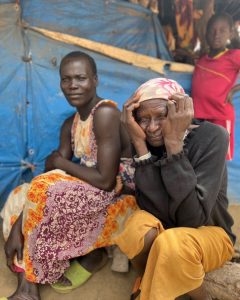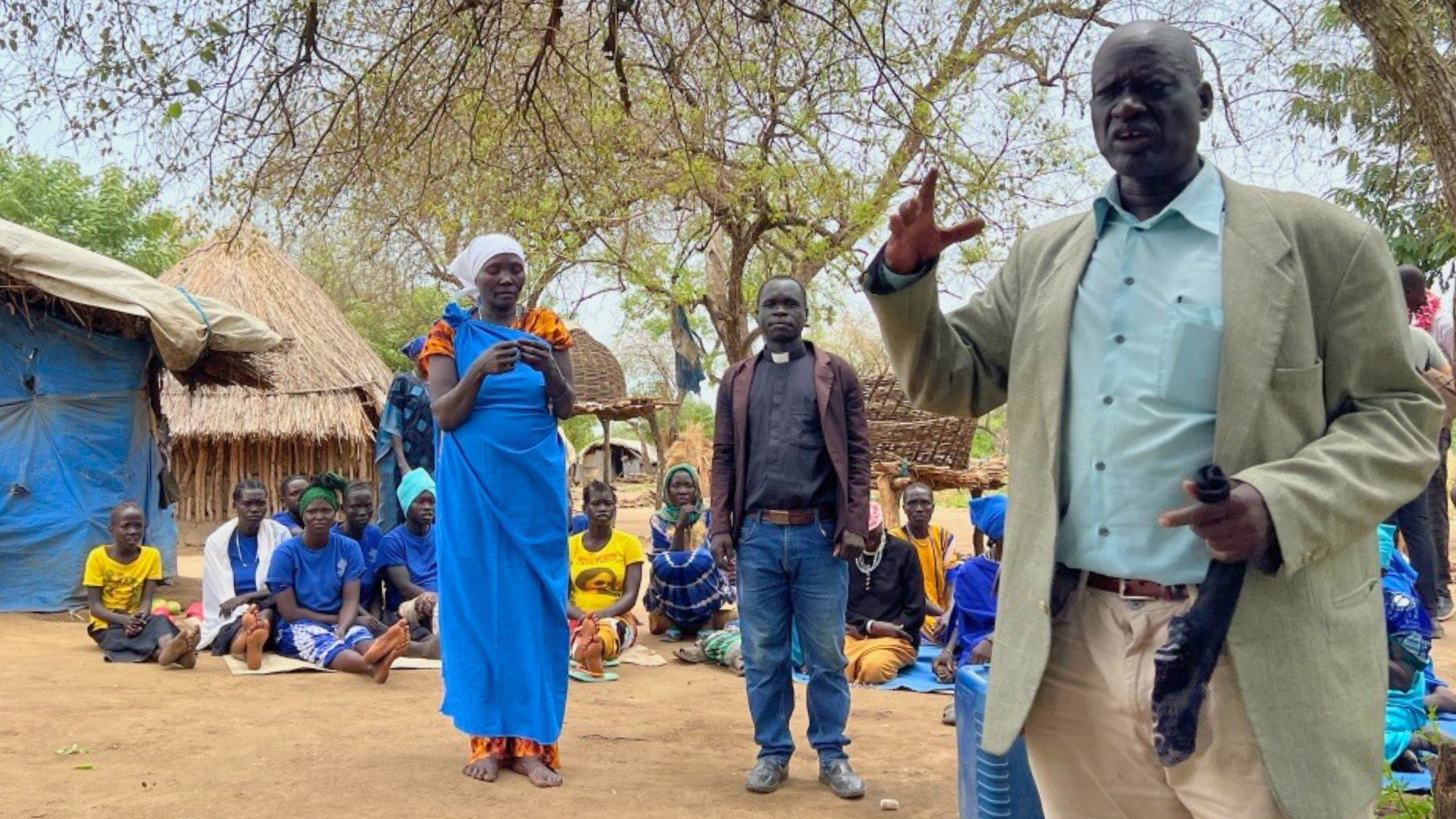Covenant ministry partners in Kenya report a worsening humanitarian crisis in refugee camps as cuts to international aid reduce food and services for hundreds of thousands of displaced people. Continued violence in the Democratic Republic of the Congo (DRC) and South Sudan is driving new arrivals, further straining resources as funding declines.
Refugee camps in Kenya have long received people fleeing regional violence, especially from Goma and nearby communities in eastern DRC. Nils Clauson, director of Covenant World Relief and Development, notes that while this conflict has “ebbed and flowed,” it remains ongoing. Kenya has received a significant share of those fleeing, and the Evangelical Covenant Church of Kenya (ECCK) has been responding to their needs.

“What’s different is cuts to international aid, both by the United States government and governments around the world that are making similarly drastic cuts,” Clauson explains. “These cuts are directly impacting refugee camps that depend on that aid to provide food and other essential resources.”
According to Mathew Jock Moses, executive director of Covenant for Relief Services and Development Organization, a ministry of the Evangelical Covenant Church of South Sudan and Ethiopia (ECCSSE), food rations have been reduced by 95 percent, and other critical services have also been eliminated. “The cuts increase diseases and reduce access to essential health care, including vaccinations, maternal care, and treatment for preventable diseases like cholera,” he said.
James Tang, Covenant global personnel in South Sudan, shared reports from the Kakuma and Kalobeyei refugee camps in Kenya. In March, rations were reduced from roughly $24 a month per person to $4. That month, the camp received no water for seven days due to a lack of fuel for pumps. A protest following the disruption resulted in several deaths and injuries.
The effects extend beyond Kenya. The ECCSSE, already preparing to respond to floods and violence in Fangak, received a call from the wife of a community leader who was hospitalized with complications from hunger. “Because of the cuts, the UN has no money to pay for medical workers or medicine,” Moses says. “This kind of support we have never provided, but due to the crisis, we must spend money in an area that was not supposed to receive these funds.”
The cessation of support also affects safety. Previously, the United Nations provided firewood to reduce the risk of women facing attacks or harassment when gathering fuel. “After the USAID cuts, the United Nations has stopped those services and has left the refugees wandering,” Moses says. The lack of resources has led to a mass exodus from the camps. “The situation has become more serious in the Kakuma refugee camp. The refugees have decided to flee the camp spontaneously due to threatening hunger that is affecting their lives,” he said.
Their desperation has devastating outcomes. “Many of the refugees tried to come to South Sudan on foot, and several of them have lost their lives,” Moses reports. “The majority of them have lost their children to the abductors who took their children and valuable properties away from them by force.”
Clauson clarifies that while Covenant partners do not receive governmental aid directly, the impact on the entire system is significant. As camps see a decrease in funding for food, the dynamic changes. Such changes “can often lead to violence as people begin to fight over the food where it is available,” he says. “And then it stresses the systems that are trying to provide it.”
In response, Covenant partners are working to support resilience and self-sufficiency. Efforts include equipping widows and orphans to plant gardens and grow their own food. “They’re beyond the point of just handing out food,” Clauson says.
At the 140th Annual Meeting in Orlando, the Evangelical Covenant Church passed a resolution on humanitarian aid. The resolution “affirms the essential humanitarian work that many governments provide, acknowledges that work as one way we carry out our Lord’s command to love our neighbor, grieves the preventable suffering and loss that will result when such funds are cut, and humbly encourages and implores governments to consider the restoration of the life-saving funding where it has been reduced, and expansion of such funding wherever possible.” It highlights the severity of recent reductions to USAID, noting Oxfam America’s estimate that as many as 95 million people could lose access to basic healthcare, potentially leading to more than 3 million preventable deaths per year.
The ECCK and the ECCSSE continue to care for refugees and displaced people in Kenya, South Sudan, and beyond. CWRD, along with the rest of the Serve Globally team, is working alongside these churches to support local efforts.














